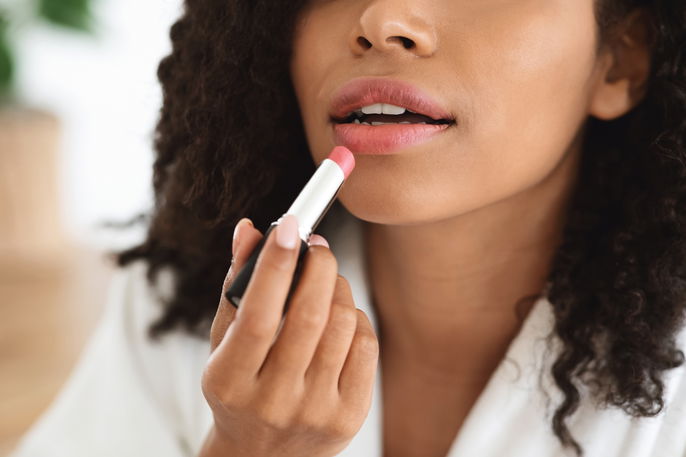Chapped lips can occur for several reasons, like a vitamin deficiency, medication use, dehydration, sunburns or climate changes.
Depending on the underlying cause of the dry, chapped lips, some people may experience additional symptoms like small wounds, a headache, decreased appetite, excessive fatigue, skin peeling and pain.
Treatment for dry lips should be monitored by a dermatologist or family doctor. It varies depending on what caused the chapped lips, but may include the use of antibiotic or antifungal creams, lip balms, dietary supplements and increased water intake.

What causes chapped lips?
The main causes of dry lips are:
1. Vitamin deficiency
Low vitamin levels, like low vitamin A or B levels, can cause symptoms like chapped lips, a lack of appetite, headaches, excessive fatigue and lapses in memory.
What to do: Treatment involves increasing your intake of foods that naturally contain the missing vitamin. Vitamin A and B foods, for example, include eggs, tuna, oats, bananas, carrots, pumpkin and spinach.
In more severe cases, your doctor or registered dietitian, may also recommend the use of oral supplements, which can be purchased in health food stores and pharmacies.
2. Changes in climate
Changes in climate, like sudden exposure to humidity, extreme cold and wind, can leave your lips dry, and promote the appearance of wounds, burning or stinging in the mouth.
What to do: To hydrate your lips, you should drink 1.5 to 3 liters of water throughout the day. You can use lip moisturizers containing cocoa or shea butter and avoid licking your lips, as the salt and pH of your saliva can worsen dry lips.
3. Cheilitis
Chapped lips is one of the main symptoms of cheilitis. This condition is characterized by inflammation caused by fungal or bacterial infections, prolonged exposure to the sun or contact with irritating substances. Other symptoms include sores on the lips, flaky skin, swelling and pain in the mouth.
What to do: Treatment for cheilitis should be oriented by a dermatologist, and may include the use of antibiotic or antifungal creams and/or the use of lip moisturizer.
You can also include foods in your diet that promote wound healing and skin regeneration, like yogurt and cocoa.
4. Sunburn
Sunburns are caused by excessive UV ray exposure from the sun. It leads to dehydration, which causes chapped lips with blisters, redness, swelling and pain.
What to do: You are advised to use a lip balm with SPF 15 or higher when you are outdoors. A sunburn on the lips can be treated with some home remedies like applying cold compresses made with chamomile tea bags or aloe vera gel-
5. Dehydration
Dry lips can appear as a result of dehydration, a condition that is associated with reduced water intake, excessive sweating, vomiting or diarrhea.
What to do: To treat dehydration, you are advised to drink around 2 L of fluids per day. This can be achieved with water, tea, fruit juices, milk, Jello and soups. It is also important to consume fresh vegetables and fruits, such as tomatoes, melons, oranges and watermelon, as they are high in water content.
Dehydration can also be treated by ingesting a homemade electrolyte solution, which is made by mixing 1 liter of water with 1 heaping tablespoon of sugar and 1 teaspoon of salt.
6. Use of medications
The use of medications such as isotretinoin (which is a medicine used to treat acne), as well as antidepressants, diuretics or antihypertensives can make lips dry.
Furthermore, chapped lips can also be a side effect of treatments such as chemotherapy and radiation therapy.
What to do: Using lip balms frequently and drinking plenty of water are some ways to relieve chapped lips caused by medications.
When to see to a doctor
You are advised to see a doctor when your chapped lips lips do not improve within 3 weeks of adopting the previously suggested interventions. Learn more about how to get rid of chapped lips.
Furthermore, it is important to consult a dermatologist or family doctor if you exprience pain or heat on the lips, as these may be signs of infection.






























